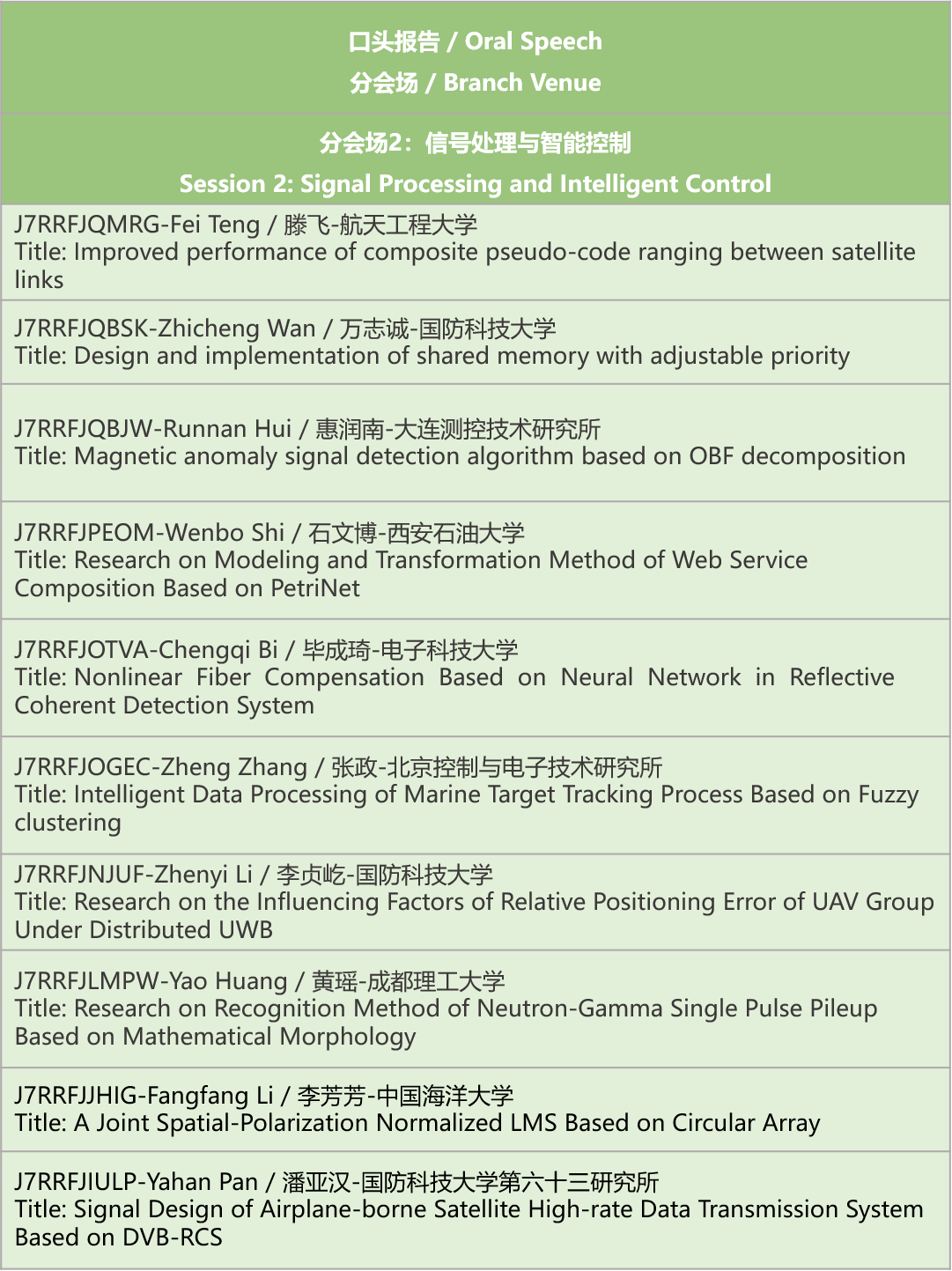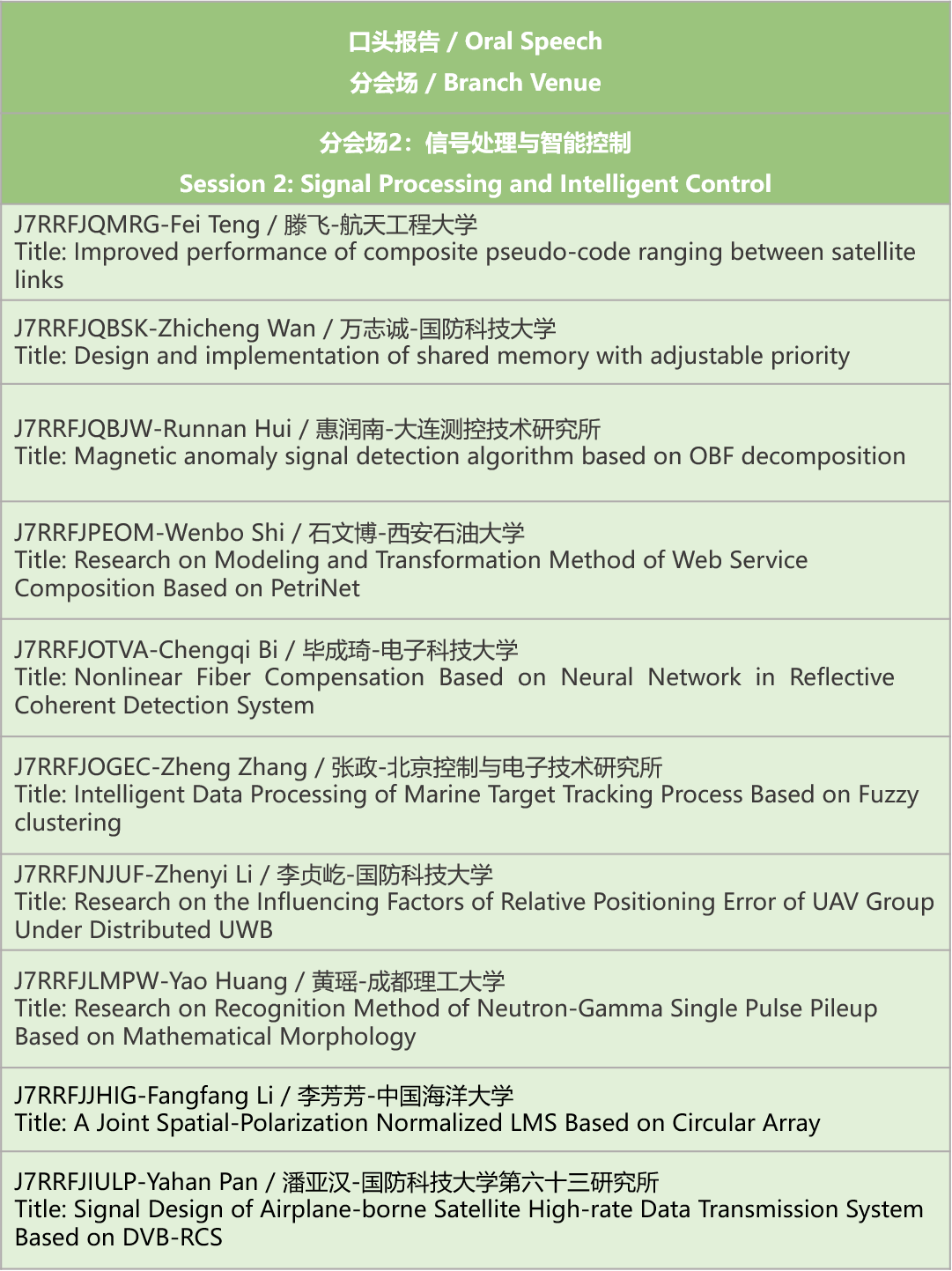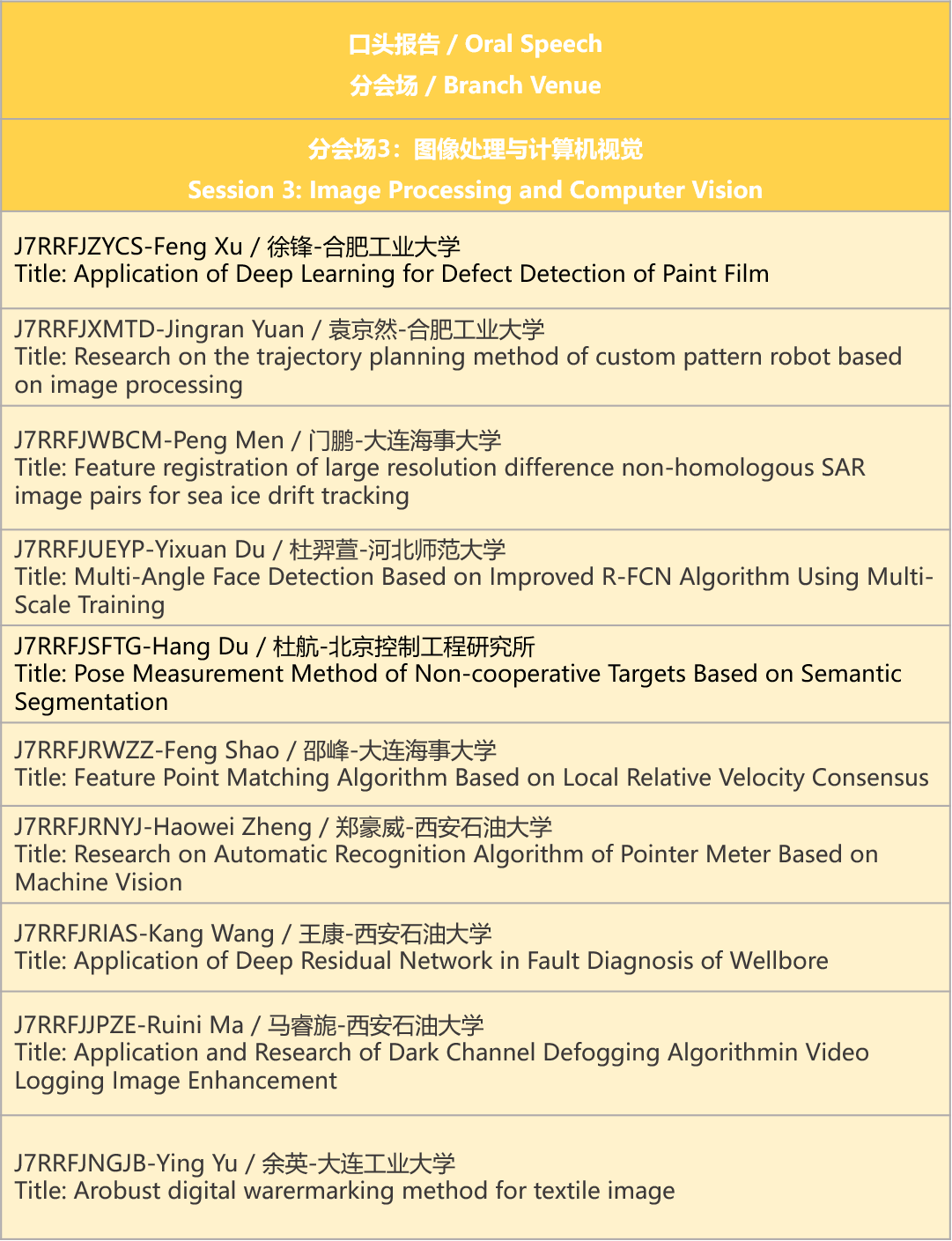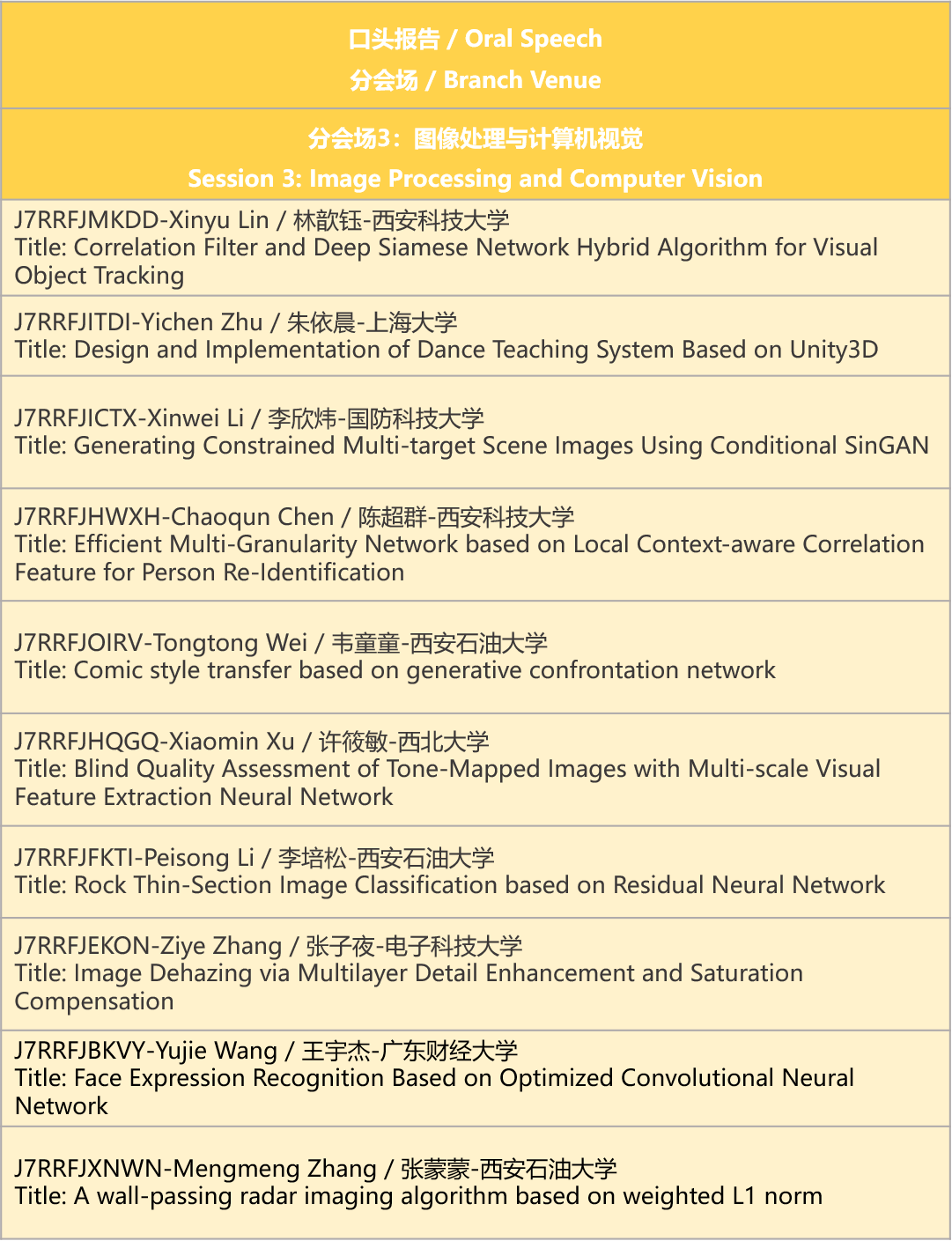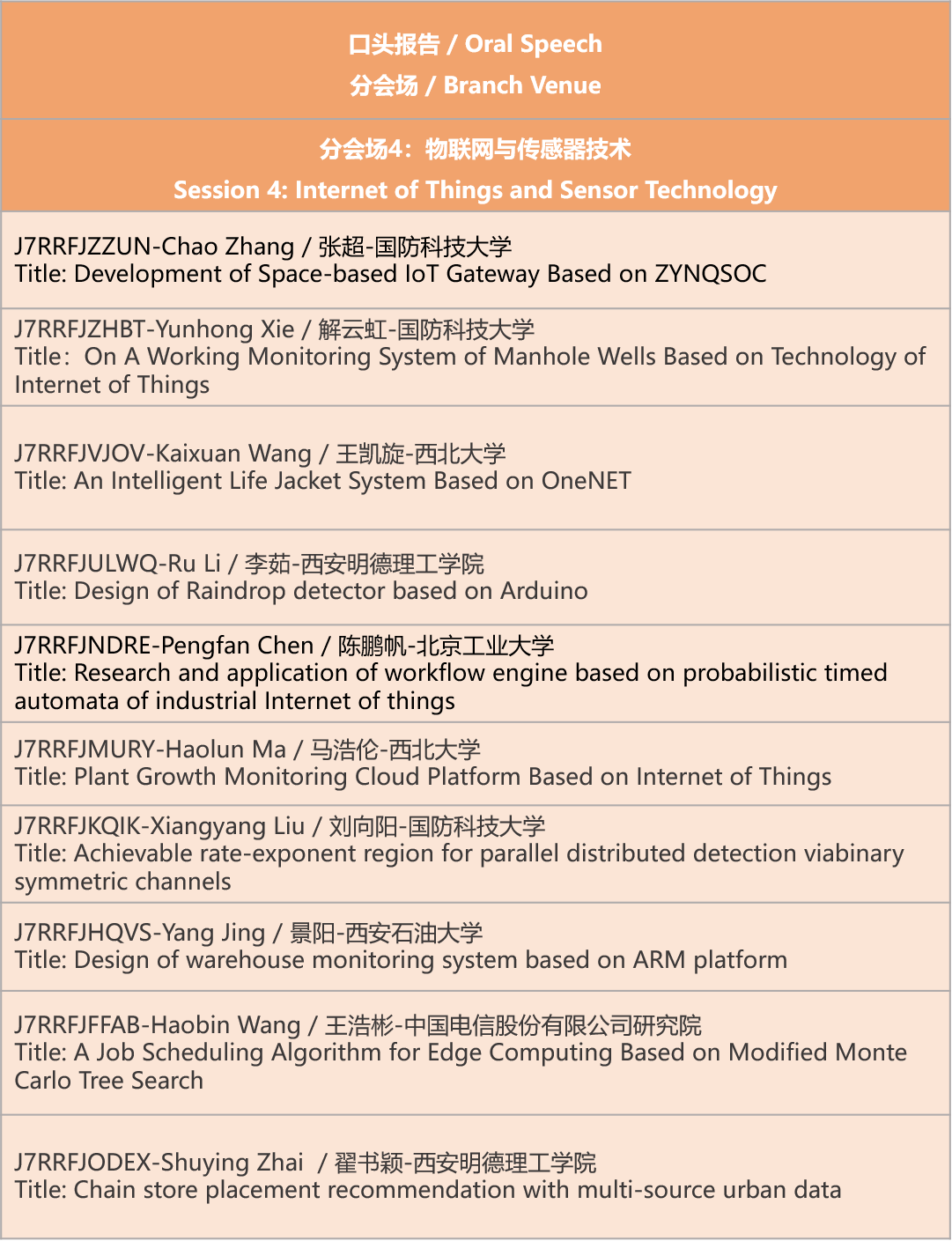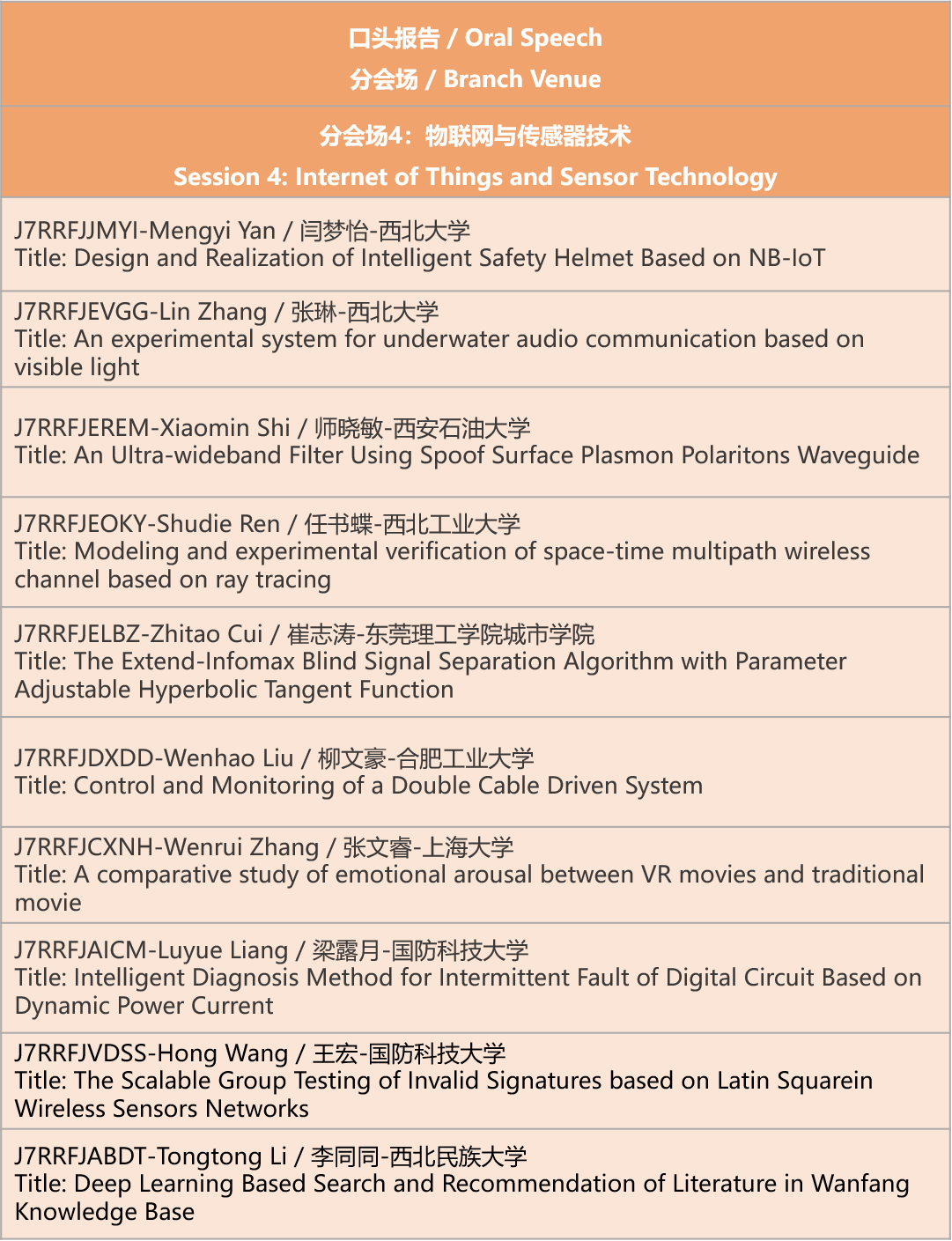2021 IEEE 6th International Conference on Intelligent Computing and Signal Processing (ICSP 2021) |
2021 IEEE 6th International Conference on Intelligent Computing and Signal Processing (ICSP 2021) has been held successfully from April 9-11, 2021 in Xi'an, China. There were about 500 delegates from each city that attended the conference, several experts in related fields were invited to give keynote speeches. The in-depth discussions among the attendees effectively advanced the academic exchange. |
| *ICSP 2021: EI Compendex Indexing | Scopus Indexing | IEEE Xplore Indexing |
| Group Photo |
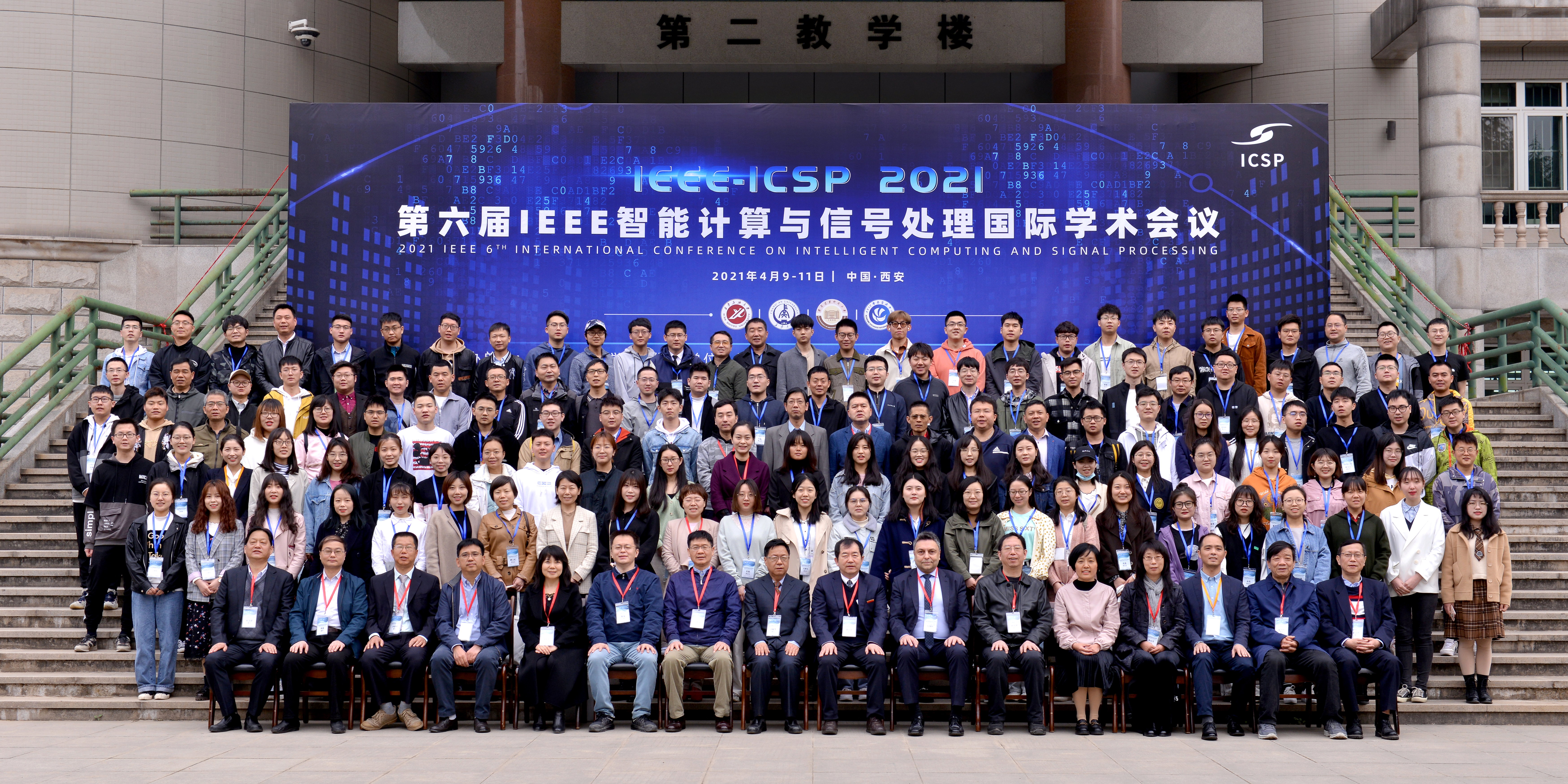 |
| Keynote Speakers |
| A. Prof. Wei Wei, Xi’an University of Technology, China |
| Title: Gradient-driven parking navigation using a continuous information potential field based on wireless |
Speech Abstract:
Wireless sensor networks can support building and transportation system automation in numerous ways. An emerging application is to guide drivers to promptly locate vacant parking spaces in large parking structures during peak hours. This paper proposes efficient parking navigation via a continuous information potential field and gradient ascent method. Our theoretical analysis proves the convergence of a proposed algorithm and efficient convergence during the first and second steps of the algorithm to effectively prevent parking navigation from a gridlock situation. The empirical study demonstrates that the proposed algorithm performs more efficiently than existing algorithms.
| Prof. Ricardo Baeza-Yates, Northeastern University, USA |
| Title: Ethics in AI: A Challenging Task |
Speech Abstract:
In the first part we cover current specific challenges: (1) discrimination (e.g., facial recognition, justice, sharing economy, language models); (2) phrenology (e.g., biometric based predictions); (3) unfair digital commerce (e.g., exposure and popularity bias); and (4) stupid models (e.g., Signal, minimal adversarial AI). These examples do have a personal bias but set the context for the second part where we address four generic challenges: (1) too many principles (e.g., principles vs. techniques), (2) cultural differences (e.g., Christian vs. Muslim); (3) regulation (e.g., privacy, antitrust) and (4) our cognitive biases. We finish discussing what we can do to address these challenges in the near future.
| Prof. Georgios Theodoropoulos, Southern University of Science and Technology, China |
| Title: Digital Twins as Info-Symbiotic Systems |
Speech Abstract:
The emergence of extreme scale computing systems and the data explosion have presented an unprecedented opportunity for the modelling and simulation of systems at a rapidly increasing scale, complexity and granularity. Digital twins, the culmination of Dynamic Data Driven Application Systems (DDDAS), provide a powerful paradigm for linking models with data and may support an info-symbiotic intermingling of “what-if” and data analytics approaches at a grand scale. Incorporating intelligence and cognition in a digital twin will unlock the full potential of this disruptive technology, and will provide seamless integration, calibration and info-symbiotic collaboration between the physical and virtual worlds. The talk will focus on the interplay between simulation and data in info-symbiotic systems and will outline a roadmap towards cognitively rich intelligent twins, discussing gaps, opportunities and some concrete examples.
| Prof. Xinguo Yu, Central China Normal University, China |
| Title: Problem Solving and Cognitive Computing |
Speech Abstract:
Problem solving is hot research direction in the recent years and has a good advance. This talk first introduces the approaches of solving different problems and their levels of cognitive computing. Then it discusses the recent algorithms in problem solving. Next, it discuss the application in the intelligent educational systems. Finally, it comments on the new methods in problem solving.
| Oral Speakers |
